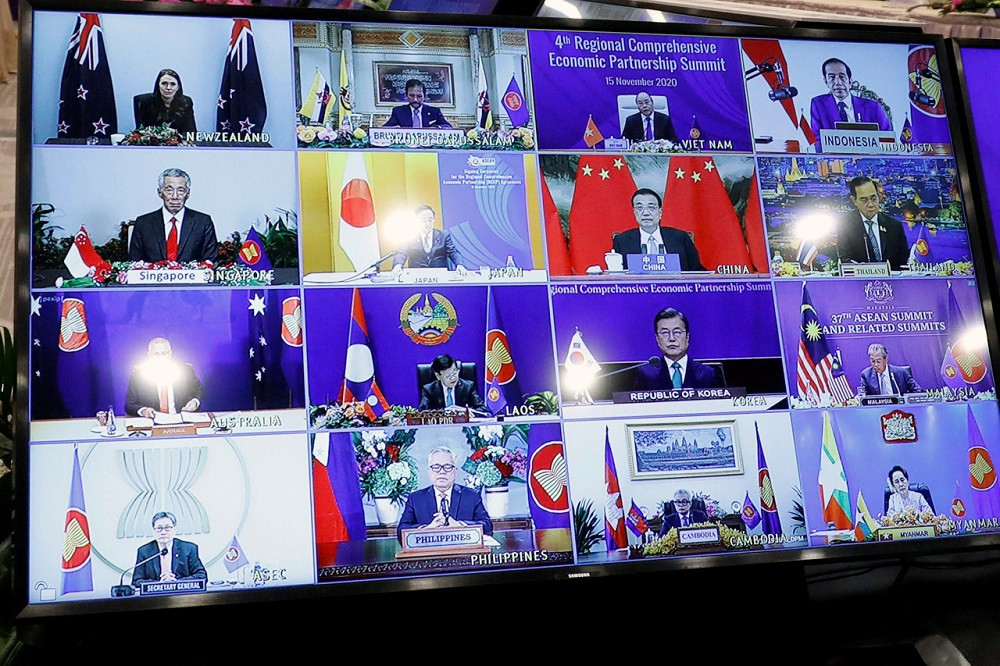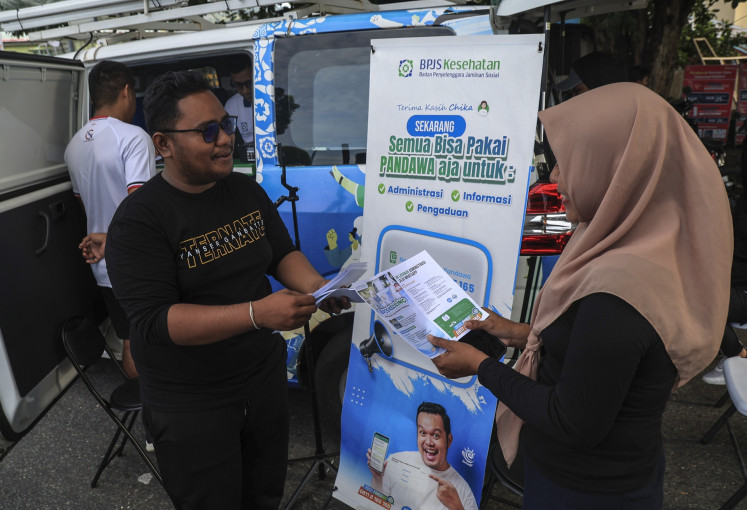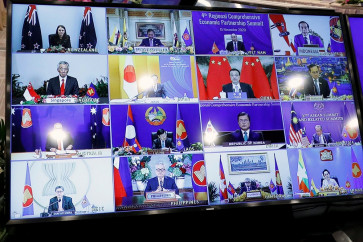Popular Reads
Top Results
Can't find what you're looking for?
View all search resultsPopular Reads
Top Results
Can't find what you're looking for?
View all search resultsRI will benefit from RCEP but has yet to ratify it
It is estimated that the Regional Comprehensive Economic Partnership (RCEP) will contribute around US$1 billion to Indonesia’s trade surplus by 2040.
Change text size
Gift Premium Articles
to Anyone
E
ast Asia’s Regional Comprehensive Economic Partnership (RCEP) will come into effect by Jan. 1, 2022, as it has already reached a quorum. As of today, 11 countries have ratified the agreement. They are Brunei, Cambodia, Laos, Thailand, Vietnam and Singapore, as well as all the non-ASEAN signatories: Australia, China, Japan, South Korea and New Zealand. In South Korea, the RCEP will come into effect on Feb 1, 2022.
Yet Indonesia has not ratified the agreement.
The RCEP is the largest economic bloc in the world. Even without India, the countries in the agreement account for 30 percent of the world’s population, 29 percent of the global gross domestic product (GDP), 27 percent of global trade and 29 percent of foreign direct investment (FDI).
By comparison, the Trans Pacific Partnership (or TPP), which no longer includes the United States and is now called the Comprehensive and Progressive Agreement for TPP (CPTPP), represents only 7 percent of the world’s population, 13 percent of global GDP, 15 percent of trade and 20 percent of FDI.
The good thing about the RCEP is that even though it does not call for liberalization at the same level, scope or depth of commitment as the CPTPP, its impact on the economies of member countries, and indeed on the world economy, will be massive. The RCEP will incentivize supply chains in the region while also being sensitive to the different political conditions and levels of development in member countries.
At the macro level, the RCEP has impacts on the Indonesian economy through exports, imports and investment. It is estimated that the RCEP will contribute around US$1 billion to Indonesia’s trade surplus by 2040. It will increase investment inflows to Indonesia by about $1.7 billion.
Overall, the agreement will boost Indonesia’s GDP by 0.07 percent by 2040, according to a 2020 estimate by the Trade Ministry and Finance Ministry. These are potential benefits which can only be realized after it is in effect. So, first thing to emphasize here is that Indonesia has to ratify the RCEP to enjoy its full benefits.



















